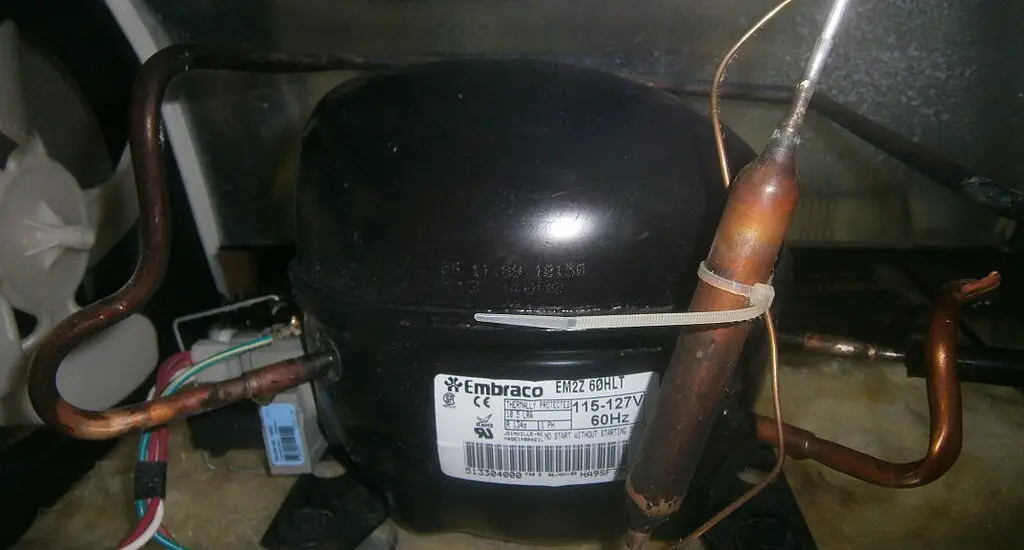In this thorough guide, we will walk you through all the factors that contribute to the refrigerator compressor overheating issue and the steps you can take to resolve it.

Table of Contents
Common Causes of Refrigerator Compressor Overheating
The causes of refrigerator compressor overheating can be complex, but they are often attributed to a few common issues. Understanding these can help you better diagnose the problem and take corrective action. Below, we break down these causes in detail:
Blocked Coils
The condenser coils in your refrigerator are designed to release heat from the appliance. When they are covered in dust or debris, they lose their efficiency in heat dissipation.
Think of it like a car radiator packed with mud. The mud acts as an insulator, making it difficult for the coils to perform their function of cooling the high-pressure, high-temperature refrigerant gas that comes from the compressor. So, clean your coils regularly using a coil brush or vacuum cleaner with a brush attachment.
Insufficient Refrigerant
The refrigerant is the liquid that circulates through the refrigerator’s cooling system. It absorbs heat from inside the fridge and carries it to the outside, thus maintaining a balanced internal temperature.
When the refrigerant level is low, the compressor has to work overtime to achieve the same cooling effect, causing it to overheat. Refilling the refrigerant is a task best left to professionals, as the substance can be hazardous and requires precise handling.
Electrical Issues
Electrical problems like a faulty relay, bad capacitors, or defective wiring can make the compressor run continuously, leading to overheating.
A relay is an electrical switch that turns the compressor on and off. If it’s defective, the compressor may run continuously. Capacitors provide the initial burst of energy needed to start the compressor; if they fail, the compressor might overwork and heat up.
If you suspect an electrical issue, it’s crucial to consult an experienced technician to avoid electrocution risks.
Poor Ventilation
Your refrigerator needs proper airflow around it to dissipate heat effectively. If it’s squeezed into a cramped space or surrounded by objects that restrict airflow, the compressor will likely overheat.
Make sure there are at least a few inches of space on all sides of the refrigerator, especially near the back where the coils and compressor are located. Also, ensure that the fridge is not placed directly against a wall or near heat-producing appliances like ovens or dishwashers.
Check out these other articles…
Refrigerator Compressor Hot But Not Starting: 4 Easy Fixes
Refrigerator Compressor Issues: How to Fix Them Like a Pro
Refrigerator Compressor Just Clicks: 5 Easy Steps to Fix It
Refrigerator Compressor Just Hums: Easy Steps to Fix It
Refrigerator Compressor Keeps Clicking: 4 Simple Fixes
Refrigerator Compressor Keeps Clicking On and Off: Fixed
Refrigerator Compressor Leaking Water: Fixed in 6 Easy Steps
When to Seek Professional Help
If you’ve attempted the diagnostic and repair steps but the issue persists, then it’s time to call in a professional. An experienced technician can provide a more comprehensive diagnosis and treatment plan. Plus, certain tasks, like refrigerant recharge, should only be done by certified professionals to ensure safety and effectiveness.
Note: Remember, refrigerators have both electrical and refrigerant components that can be hazardous if not handled properly. Always exercise caution and refer to your owner’s manual or consult a certified technician when dealing with serious issues.